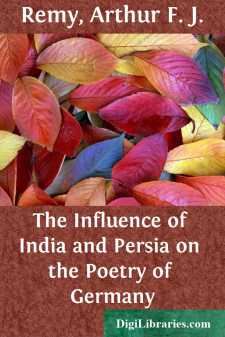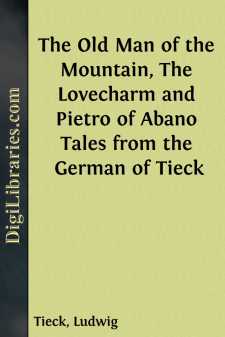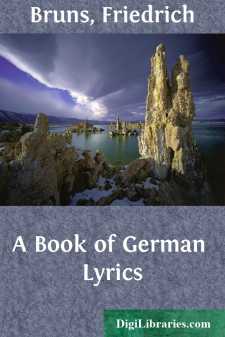Categories
- Antiques & Collectibles 13
- Architecture 36
- Art 48
- Bibles 22
- Biography & Autobiography 813
- Body, Mind & Spirit 142
- Business & Economics 28
- Children's Books 13
- Children's Fiction 10
- Computers 4
- Cooking 94
- Crafts & Hobbies 4
- Drama 346
- Education 46
- Family & Relationships 57
- Fiction 11828
- Games 19
- Gardening 17
- Health & Fitness 34
- History 1377
- House & Home 1
- Humor 147
- Juvenile Fiction 1873
- Juvenile Nonfiction 202
- Language Arts & Disciplines 88
- Law 16
- Literary Collections 686
- Literary Criticism 179
- Mathematics 13
- Medical 41
- Music 40
- Nature 179
- Non-Classifiable 1768
- Performing Arts 7
- Periodicals 1453
- Philosophy 64
- Photography 2
- Poetry 896
- Political Science 203
- Psychology 42
- Reference 154
- Religion 513
- Science 126
- Self-Help 84
- Social Science 81
- Sports & Recreation 34
- Study Aids 3
- Technology & Engineering 59
- Transportation 23
- Travel 463
- True Crime 29
Sort by:
by:
Calvin Thomas
PREFACE This book is designed to accompany an introductory study of the history of German literature. It is assumed that the history itself will be learned, so far as necessary, either from lectures or from some other book devoted to the subject. As the selections were made, for the most part, while I was writing my own short history of German literature for the series published under the general...
more...
by:
Edwin Bjorkman
INTRODUCTION Hermann Bahr, the noted playwright and critic, tried one day to explain the spirit of certain Viennese architecture to a German friend, who persisted in saying: "Yes, yes, but always there remains something that I find curiously foreign." At that moment an old-fashioned Spanish state carriage was coming along the street, probably on its way to or from the imperial palace. The...
more...
by:
Joseph Wright
INTRODUCTION § 1. MIDDLE HIGH GERMAN Middle High German (MHG.) embraces the High German language from about the year 1100 to 1500. It is divided into three great dialect-groups: Upper German, Franconian, and East Middle German. 1. Upper German is divided into: (a) Alemanic, embracing High Alemanic (Switzerland), and Low Alemanic (South Baden, Swabia, and Alsace). (b) Bavarian, extending over Bavaria...
more...
CHAPTER I. INTRODUCTION. Information of Mediæval Europe Concerning India and Persia—Travellers—India and Persia in Mediæval German Poetry. The knowledge which mediæval Europe had of India and Persia was mostly indirect, and, as might be expected, deficient both in correctness and extent, resting, as it did, on the statements of classical and patristic writers, on hearsay and on oral...
more...
ARITHMETIK UND ALGEBRA. Study carefully the notes (beginning page 97) to which the small numbers in the text refer. Arithmetik ist ein Fremdwort, das auf deutsch Zahlenlehre bedeutet. 1 + 2 = 3 wird gelesen: eins und zwei (oder eins plus zwei) ist drei. 25 - 13 = 12 wird gelesen: 25 weniger (oder minus) 13 ist 12. 2 × 3 = 6 wird gelesen: 2 mal 3 ist 6. 72 ÷ 6 = 12 wird gelesen: 72...
more...
by:
Ludwig Tieck
THE OLD MAN OF THE MOUNTAIN. The name of Herr Balthasar was well known throughout the whole hill-country: not a child but had heard of his vast riches, and had some story to tell of him. Everybody too loved and honoured him; for his bounty was as great as his wealth: but at the same time he was viewed with fear; for he harast both himself and others by a number of strange whims which no one could...
more...
by:
Friedrich Bruns
1. WILLKOMMEN UND ABSCHIED Es schlug mein Herz, geschwind zu Pferde!Es war getan, fast eh' gedacht;Der Abend wiegte schon die Erde,Und an den Bergen hing die Nacht;Schon stand im Nebelkleid die Eiche, 5Ein aufgetürmter Riese, da,Wo Finsternis aus dem GesträucheMit hundert schwarzen Augen sah. Der Mond von einem WolkenhügelSah kläglich aus dem Duft hervor; 10Die Winde schwangen leise...
more...
INTRODUCTION. The important influence which German literature has exercised on American culture and literature extends from the early part of the nineteenth century. This influence was, in a measure, a continuation of the interest and activity that had existed in England during the last quarter of the eighteenth century. Prior to 1790, numerous translations from Gellert, Wieland, Klopstock, Lessing,...
more...
I Because I believe that many do not understand the verse ofLichtenstein, do not correctly understand, do not clearly understand— II The first eighty poems are lyric. In the usual sense. They are not much different from poetry that praises gardens. The content is the distress of love, death, universal longing. The impulse to formulate them in the "cynical" vein (like cabaret songs) may, for...
more...
I Here's where I've planted my garden and here I shall care for love's blossoms— As I am taught by my muse, carefully sort them in plots: Fertile branches, whose product is golden fruit of my lifetime, Set here in happier years, tended with pleasure today. You, stand here at my side, good Priapus—albeit from thieves I've Nothing to fear. Freely pluck, whosoever would eat....
more...











